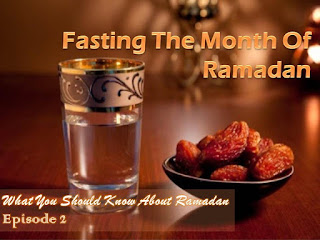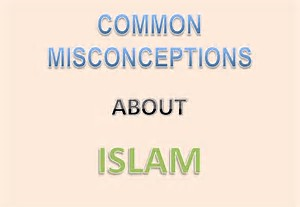WHAT YOU SHOULD KNOW ABOUT RAMADAN (EPISODE 2)
EPISODE
2: Fasting the Month of Ramadan
By Yusuff Ademola Adesina
It gives me a great pleasure having you read this
episode. In the previous episode, I have discussed the virtues of Ramadan;
follow this link if you missed episode 1
(http://themindbuilders.blogspot.com.ng/2017/05/what-you-should-know-about-ramadan.html)
. And I believe by now, you should be well acquainted of the virtues of Ramadan and be eager to witness its commencement. in shaa Allah.
(http://themindbuilders.blogspot.com.ng/2017/05/what-you-should-know-about-ramadan.html)
. And I believe by now, you should be well acquainted of the virtues of Ramadan and be eager to witness its commencement. in shaa Allah.
Obligation of Fasting in Ramadan
Fasting (Siyaam in Arabic) literally means
abstaining; in Islam it means abstaining from things that break the fast (such
as foods, drinks, smoking) from dawn until sunset, having made intention to
fast. In addition, fasting requires one to avoid evil speech and actions, for
Abu Hurayrah reported that the Prophet (PBUH) said:
“Whoever does not give up forged speech and evil
actions, Allah is not in need of his leaving his food and drink (i.e. Allah
will not accept his fasting.” (SahihBukhari, Vol. 3, Bk 31, No 127)
It is unanimously agreed upon that fasting the
month of Ramadan is OBLIGATORY, the evidence of which are:
“O you who have believed, decreed upon you is
fasting as it was decreed upon those before you that you may become righteous.”
(Q2:183)
Narrated Ibn `Umar: Allah's Apostle said:
“Islam is based on (the following) five (principles):
to testify that there is no deity (owing the right to be worshipped) but Allah
and that Muhammad is Allah's Messenger, to offer the (compulsory
congregational) prayers dutifully and perfectly, to pay Zakat (i.e. obligatory
charity), to perform Hajj (i.e. Pilgrimage to Mecca) and To observe fast during
the month of Ramadan.” (SahihBukhari, Vol. 1, BK 2, No 7)
Thus whoever breaks the fast during Ramadan without
legitimate excuse has committed a serious major sin.
The Beginning of Ramadan
The onset of Ramadan is confirmed by the sighting
of the new crescent of the month, or by the completion of thirty days of the
preceding month, Shaban. Hence, fasting becomes obligatory afterwards.
Abu Hurayrah narrated that the prophet of Allah
said:
“Start fasting on seeing the crescent (of Ramadan),
and give up fasting on seeing the crescent (of Shawwal), and if the sky is
overcast (and you cannot see it), completely thirty days of Sha’ban.”
(SahihBukhari, Vol. 3, Bk 31, No 133)
People Exempted from the Obligatory
Fasting of Ramadan
Fasting is binding on every adult, sane and healthy
Muslim who is able to fast and has no legitimate excuse. However, there are
some categories of people who are exempted from obligation.
- The ill and traveller
“…and whoever is ill or on a journey – then an
equal number of other days. Allah intends for you ease and does not intend for
you hardship…” (Q2:185)
Jabir bin Abdullah narrated: Allah’s Apostle was on
a journey and saw a crowd of people, and a man was being shaded (by them). He
asked, ‘What is the matter?’ They said, “He (the man) is fasting.” The prophet
said, “It is not righteousness that you fast on a journey.” (SahihBukhari, Vol.
3, Bk 31, No 167)
2.
The
menstruating, pregnant and breast-feeding woman
The Prophet said:
“Truly, Allah has relieved the traveler of half
(his) prayer and has given him leave of break (his) fast and He has also given
leave I respect to the sick, the woman who suckles a child and the pregnant
women, when they fear (harm) to their children.” (Tirmidhi)
3.
The
elderly
Narrated 'Ata: That he heard Ibn `Abbas reciting
the Divine Verse: "…And for those who can fast they had a choice either
fast, or feed a poor for every day..."(2.184) Ibn `Abbas said, "This
Verse is not abrogated, but it is meant for old men and old women who have no
strength to fast, so they should feed one poor person for each day of fasting
(instead of fasting). (SahihBukhari, Vol. 6, Bk 60, No 32)
Things that Vitiate the Fast
Apart from menstruation and post-natal bleeding,
other things that can break the fast are considered to do so, if one of the
following conditions applies:
- If the person knows that it breaks the fast;
- If he is consciously aware of what is doing; that is, not has forgotten that he is fasting;
- If he does it intentionally.
Other things that break the fast apart from
menstruation and post-natal bleeding are:
Sexual intercourse, cupping, blood transfusion,
eating or drinking, deliberate vomiting and injections.
Things that do not break the fast include: kidney
dialysis, eye-drops, ear-drops, having a tooth extracted, nose-drops and so on.
Forgetfulness during the fast
Whoever eats or drinks forgetfully during his fast
should complete his fast and he does not need to make it up, for Abu Hurayrah
reported that the Prophet (PBUH) said:
“If somebody eats or drinks forgetfully then he
should complete his fast, for what he has eaten or drunk, has been given to him
by Allah.” (SahihBukhari, Vol. 3, Bk 31, No 154)
Whoever sees someone else who is eating because he
has forgotten, he should remind him, for Allah says:
“…Help one another in righteousness and piety…”
(Q5:2)
Rulings on Missing or Breaking the Fast
Whoever misses the fast of Ramadan for a legitimate
excuse aforementioned above; (or in another word, the exempted person from the
fast due to illness, menstruation, travelling, breastfeeding etc) is to make up
for the equal number of days he misses, for Allah says:
“[Fasting for] a limited number of days. So whoever
among you is ill or on a journey [during them] – then an equal number of other
days [are to be made up]...” (Q2:184)
As for the elderly who are unable to fast, they are
to give a ransom by feeding a poor for each day. The evidence for this is the
verse of Quran that says:
“…And upon those who are able [to fast, but with
hardship] – a ransom [as substitute] of feeding a poor person [each day]…”
(Q2:184)
Whoever breaks his fast intentionally (by eating,
drinking, smoking, or vomiting by sticking his finger down his throat) has
committed a grave major sin, and he has to fast for the rest of the day, repent
and make up for the equal number of days.
As for he who breaks his fast by deliberately
having sexual intercourse with his wife or concubine, he has to continue the
fast for the rest of the day, repent, make up for the fast and offer expiation,
for Abu Huraira narrated:
“While we were sitting with the Prophet a man came
and said, "O Allah's Apostle! I have been ruined." Allah's Apostle
asked, ‘what was the matter with him?’ He replied "I had sexual
intercourse with my wife while I was fasting." Allah's Apostle asked him,
"Can you afford to manumit a slave?" He replied in the negative.
Allah's Apostle asked him, "Can you fast for two successive months?"
He replied in the negative. The Prophet asked him, "Can you afford to feed
sixty poor persons?" He replied in the negative…” (SahihBukhari, Vol. 3,
Bk 31, No 157)
I hope you have learnt and benefitted from this
episode. I look forward to having you read the next episode wherein I shall
discuss the Sunnah of Sahur and Iftar, the spiritual and biopsychosocial
virtues of fasting and the night prayer (Taraweeh).
RELATED
POSTS
WHAT YOU SHOULD KNOW ABOUT RAMADAN (EPISODE 2) http://themindbuilders.blogspot.com.ng/2017/05/what-you-should-about-ramadan-episode-2.html
WHAT YOU SHOULD KNOW ABOUT RAMADAN (EPISODE 1) http://themindbuilders.blogspot.com.ng/2017/05/what-you-should-know-about-ramadan.html
RAMADAN AND ITS SPIRITUALITY, HOW MUCH DO YOU
KNOW? http://themindbuilders.blogspot.com.ng/2017/05/ramadan-its-spirituality-how-much-do.html













Comments
Post a Comment